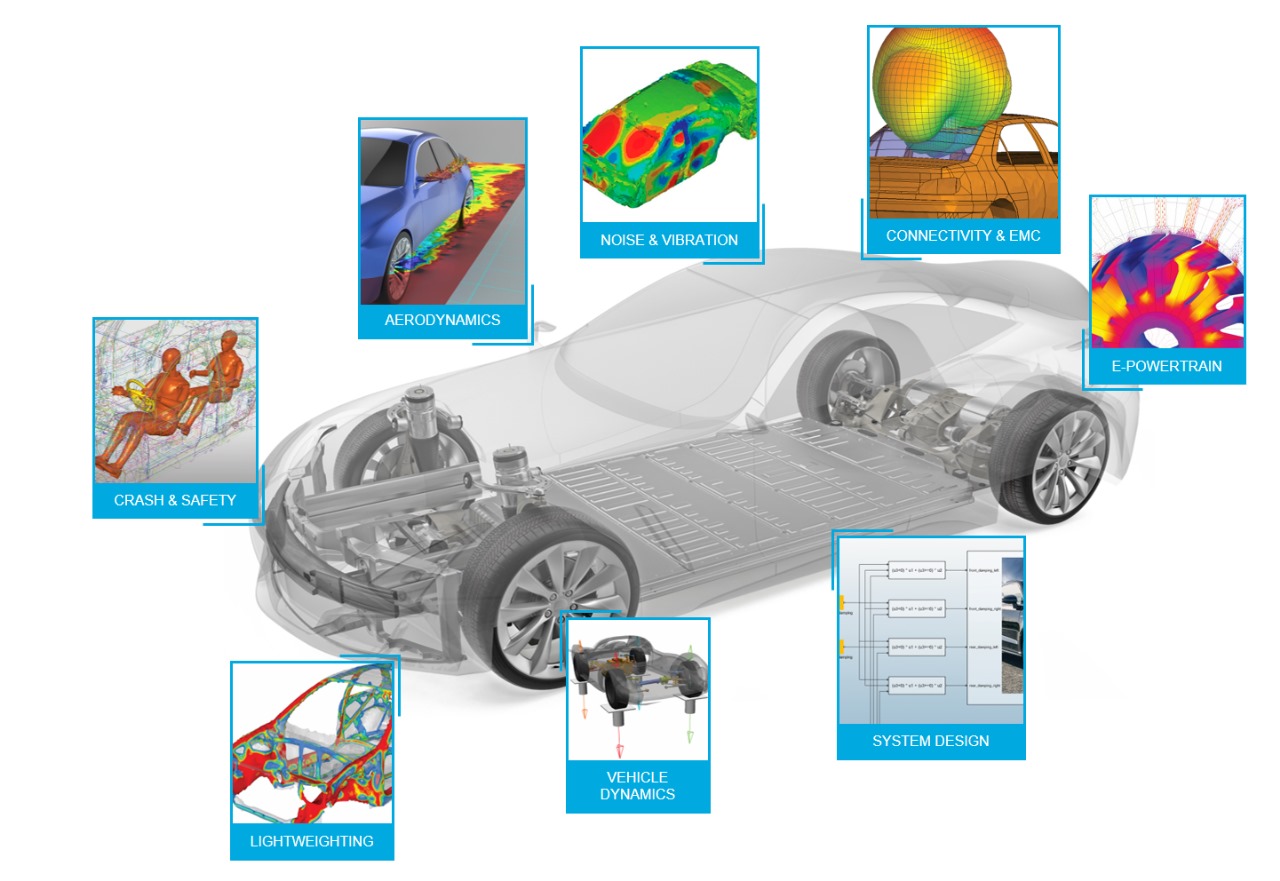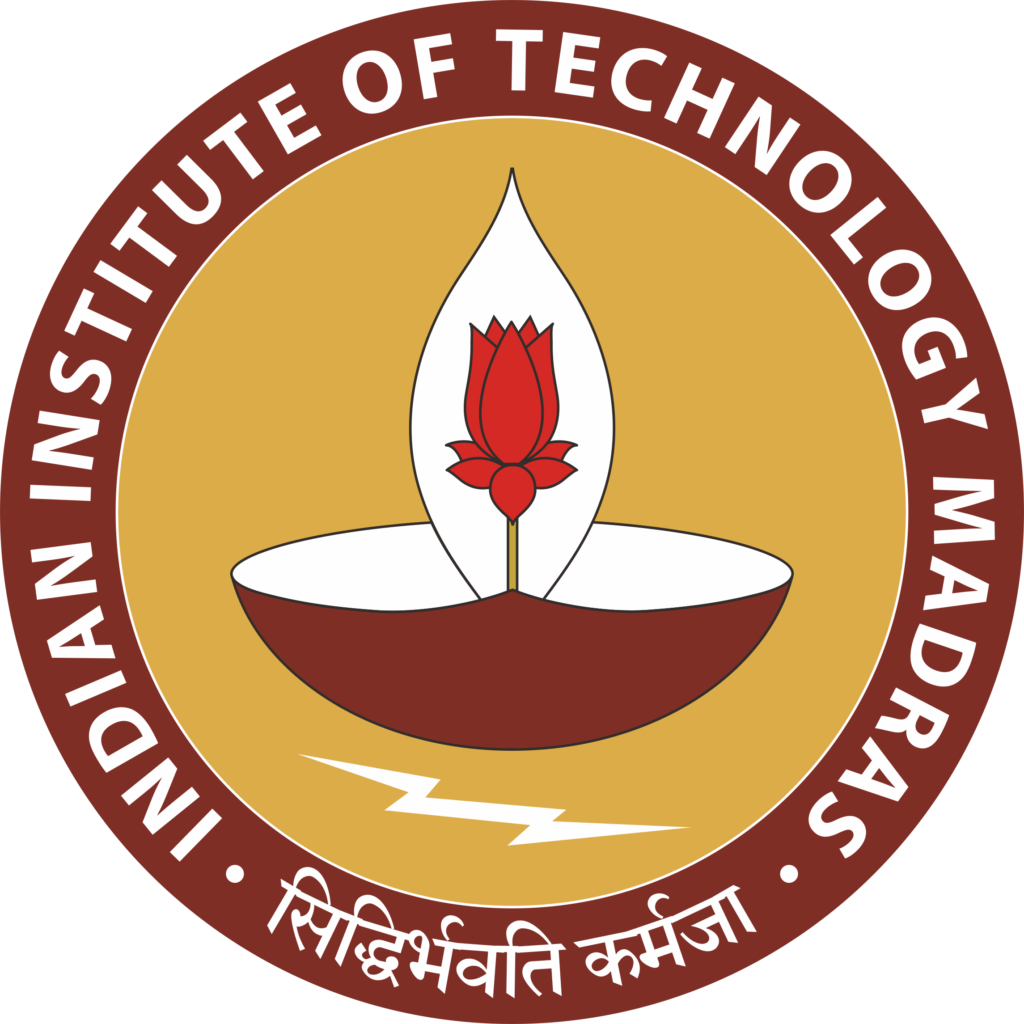Altair EV Simulation Lab
Electric Vehicle Simulation Laboratory

Altair EV Simulation Lab
The Altair EV Simulation Lab is a state-of-the-art facility dedicated to advancing research and education in electric vehicle (EV) technology. Featuring ten high-end PCs, each fully equipped with a comprehensive suite of Altair simulation tools, the lab provides an optimal environment for engineers, researchers, and students to explore the complexities of electric vehicle design, performance, and optimization. Sponsored by Altair, this lab integrates cutting-edge technology and industry-leading software to foster innovation in e-mobility.
The lab hosts a variety of Altair simulation tools that cover multiple aspects of electric vehicle design:
- Altair HyperMesh: Facilitates advanced mesh generation and pre-processing, crucial for finite element analysis (FEA).
- Altair Inspire: Supports conceptual design and topology optimization, allowing users to innovate while minimizing material usage.
- Altair Flux: Specializes in electromagnetic simulations, essential for analyzing motors, batteries, and other electrical components.
- Altair AcuSolve: Provides computational fluid dynamics (CFD) capabilities to assess thermal management and aerodynamic performance.
- Altair MotionSolve: Allows users to simulate multi-body dynamics, crucial for analyzing vehicle motion and interactions between components.
- Altair OptiStruct: Focuses on structural analysis and optimization, ensuring vehicle components are both strong and lightweight.
- Altair Smart Learning: Leverages data analytics and machine learning to enhance simulation results and inform design decisions.
- Altair PSIM: A powerful simulation tool specifically designed for power electronics and motor drives, allowing users to model and analyze system performance effectively.
- Altair Twin Activate: Supports model-based design and simulation, enabling the integration of physical and virtual systems to optimize performance and predict behavior under varying conditions.
For a complete overview of all available Altair tools, visit the Altair Marketplace.
- Intuitive Interfaces: The software tools are designed with user-friendly interfaces, making it easier for users to navigate complex functionalities and streamline their workflow.
- Training Resources: Access to tutorials, documentation, and workshops ensures that users can quickly get up to speed with the tools.
- Group Projects: With multiple workstations, teams can work together on projects, share insights, and conduct simultaneous simulations.
The Altair EV Simulation Lab supports a broad range of applications in the electric vehicle domain, including:
- Electric Vehicle Design:
- Users can simulate and analyze various aspects of EV performance, including powertrain dynamics, energy consumption, and overall vehicle efficiency.
- Battery Optimization:
- The lab allows for detailed analysis of battery systems, evaluating their performance, thermal characteristics, and life cycle under different operating conditions.
- Powertrain Simulation:
- Engineers can assess the performance of electric motors and drive systems using tools like PSIM, optimizing for efficiency and responsiveness.
- Structural Integrity:
- Users can perform simulations to ensure the strength and durability of vehicle components under various load conditions, contributing to safety and performance.
- Aerodynamics and Thermal Management:
- CFD tools help in analyzing airflow over the vehicle body, optimizing aerodynamics to improve efficiency and reduce drag, while also studying thermal management strategies.
- Model-Based Design:
- Using Twin Activate, users can integrate physical models with simulation data, allowing for iterative design improvements and performance predictions.
The Altair EV Simulation Lab is an invaluable resource for fostering innovation in electric vehicle technology. With its advanced high-performance workstations and comprehensive suite of Altair tools, the lab offers an unparalleled environment for students, researchers, and industry professionals to push the boundaries of EV design and performance. By providing hands-on experience with cutting-edge simulation technologies, the lab prepares the next generation of engineers to tackle the challenges of the evolving e-mobility landscape.
Users can simulate and analyze various aspects of EV performance, including powertrain dynamics, energy consumption, and overall vehicle efficiency.
Using Twin Activate, users can integrate physical models with simulation data, allowing for iterative design improvements and performance predictions.
Using Twin Activate, users can integrate physical models with simulation data, allowing for iterative design improvements and performance predictions.
Users can simulate and analyze various aspects of EV performance, including powertrain dynamics, energy consumption, and overall vehicle efficiency.
Address
ED 206, Department of Engineering Design,
IIT Madras
Phone
044 2257 5613
lead.emobility@coezet.iitm.ac.in


